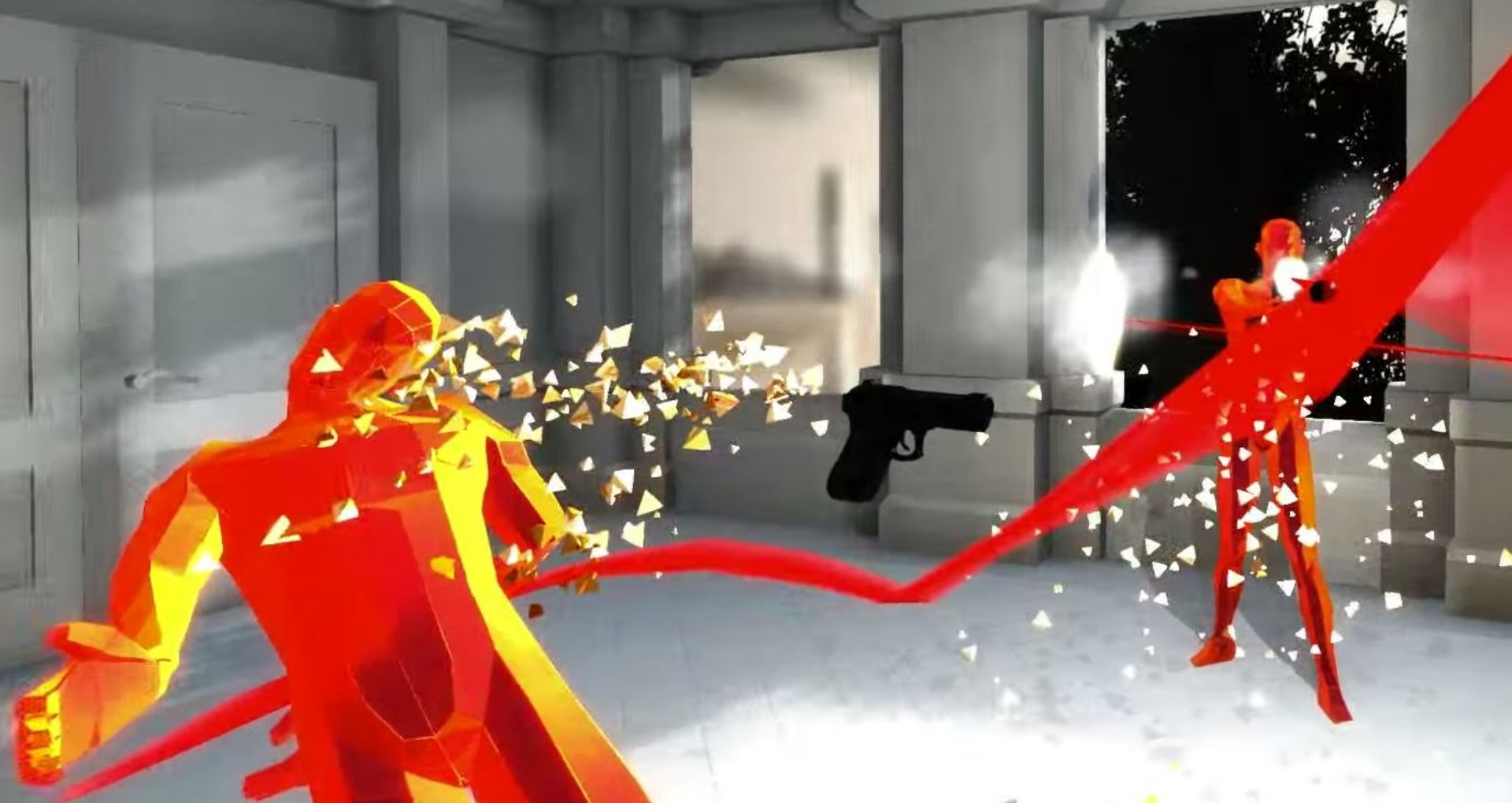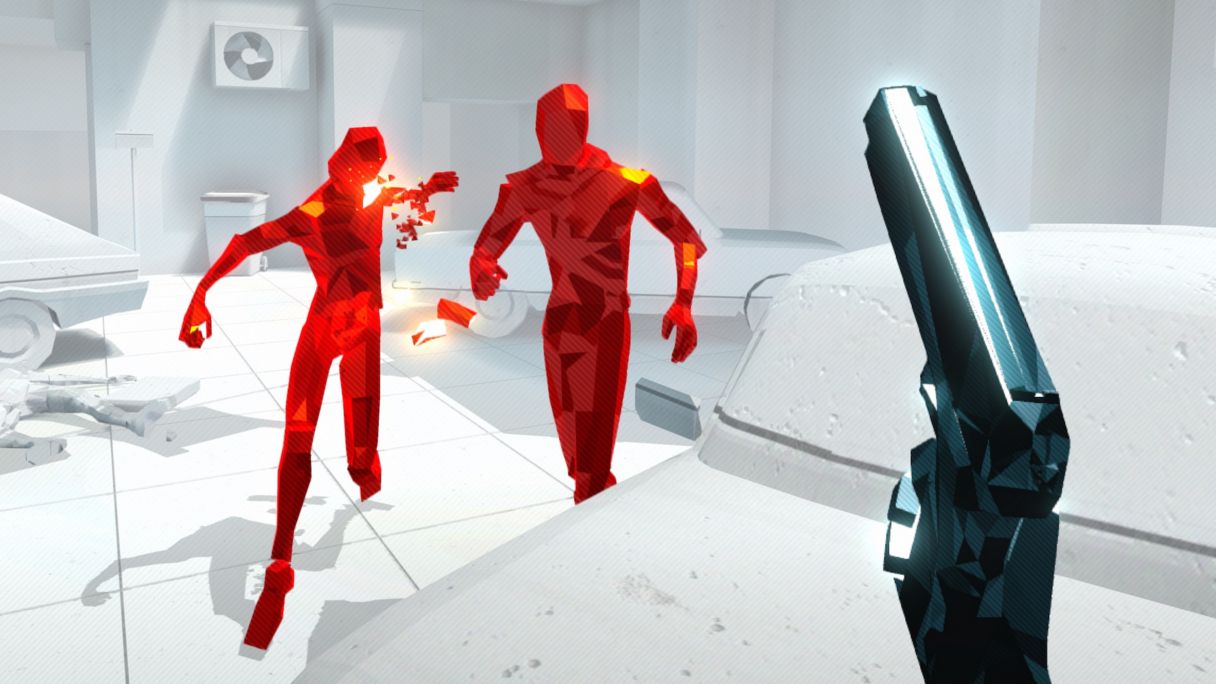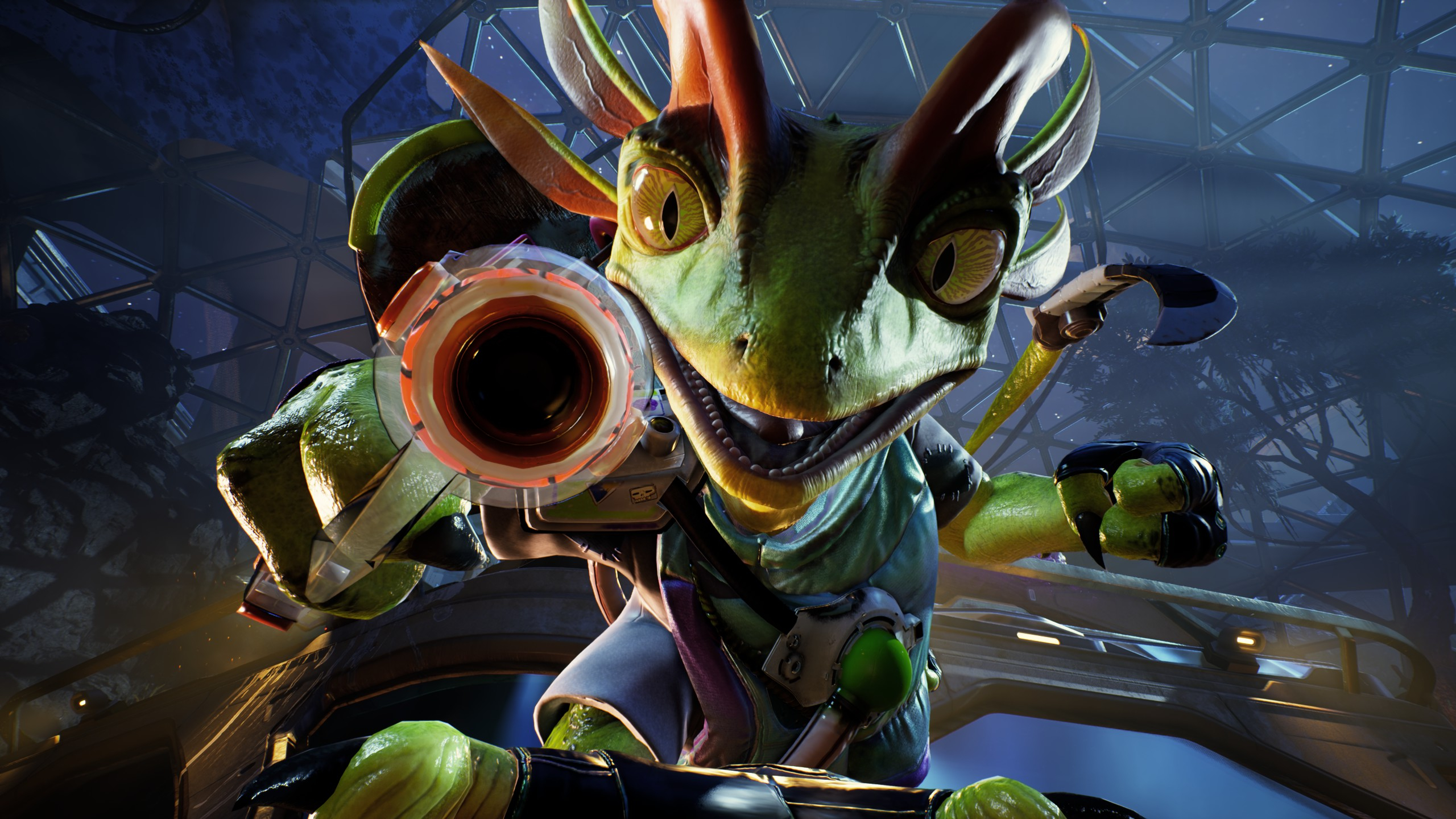Our Verdict
Effortlessly stylish, perhaps to the detriment of substance. But Superhot isn't one to miss.
PC Gamer's got your back
I'm in an elevator. Surrounding me are three hostile red figures, each holding a gun and preparing to fire. The words "ELEVATOR PITCH" flash momentarily on the screen. I punch the guy to my left, disarming him. As I turn to pluck his now discarded gun from midair, I'm killed—shot point blank by one of my other attackers. I press R to reload and try again.
What is it: Time bending FPS with a sense of style.
Developer: SUPERHOT Team
Publisher: In-house Expect to pay: $25 / £18
Reviewed on: Windows 10, 8GB RAM, i5-3570k, GeForce GTX 970
Multiplayer: None
Link: Official site
I punch the guy to my to left. I'm killed. I press R. I punch the guy to my left as I move towards him, dodging a bullet. I grab his gun and turn. Killed. R. I punch and move, then—ignoring the gun—turn and punch the second guy, and the third. A few more punches and two guys are down for good. I back up and grab a gun from the floor, turn towards the final man and fire. I hear a shotgun blast. The elevator's doors have opened, and more men are waiting outside. I turn, but it's too late. Killed. R.
The elevator sequence is Superhot at its most compact, most distilled, but it's a microcosm of any of the game's 30-or-so levels. Or rather, not levels—that implies something larger. Superhot has scenarios. Each is its own elevator pitch—a standalone vignette taking place at that moment in an action film when the shit hits the fan. The deal went bad. The bartender is reaching for his gun. The goons have tracked you down. There's surprisingly little filler here. Most scenarios are memorable, and effortlessly cool in their setup and delivery.
In each, you're outnumbered and outgunned. A single bullet can kill you, and, thanks to the first person view, it just might. Imagine Hotline Miami, but you can only see what's happening in front of you. It's in redressing the balance that Superhot gets clever. As explained in its clean, minimalist font during the game's first level: time moves only when you do. If you're standing still, the action moves imperceptibly slowly. Take a step forward, and the action jolts forward in kind.

By sticking to the concept so rigorously, Superhot makes bullet time feel fresh. This is more than a slo-mo gunfight—by inextricably linking distance and time, the most convoluted action sequences are made possible. You'll sidestep bullets, throw objects and shoot at the point you hope the enemy will eventually be standing. It works because the rules are so consistent. There's no reloading, but throw an object at an armed enemy and they'll drop their weapon. You replenish ammo by getting a new gun—throwing your empty one at an enemy, and grabbing theirs. I've done this many, many times, and it never stops feeling badass.
As you grow more familiar with the weapons, additional techniques emerge. My favourite weapon is the katana, which lets you slash bullets from out of the air. There are subtleties, too. A discarded handgun will fly further than a discarded shotgun, making it easier to catch the former. It's less powerful but, in Superhot, any weapon is still a major advantage. At the same time, picking up a weapon is a risk. The act of grabbing requires a specific amount of movement, and moves the action forward by the amount of time it takes.
With all these systems working together, Superhot is part puzzle box, part improvisational choreography. If there's a complaint to be made, it's that the outcome is heavily affected by chance—specifically, by the aim of the enemies. Even a messy plan can come together if their bullets don't come near you. The AI seems incredibly basic—enemies mostly run and shoot—but it doesn't really matter. From a real-time perspective, each sequence lasts only a few seconds. Enemies aren't required to do anything but be a threat, which is more a matter of positioning.
Keep up to date with the most important stories and the best deals, as picked by the PC Gamer team.
Enemies are featureless humanoid shapes. They shatter when killed, as if made out of glass.
Superhot's arenas are surreally styled out of concrete—everything, including chairs, cars and subway trains, painted in a single, uniform colour. Into that, enemies are featureless humanoid shapes. They shatter when killed, as if made out of glass. It's stark and minimalist in presentation, giving you only the basic of information. Out of the action, the game's menus are equally stylish—mimicking a retro, command line interface UI. It's filled with easter eggs, from ASCII art to weird, simple minigames.
The interface ties into the story, which begins when a friend sends you a crack for superhot.exe. You play a bundle of levels, then drop back into the chat client to talk about your experience—bashing randomly on the keyboard to move the text forward. I'll not say any more about the plot, save that it's an eerie meta-adventure that offers a compelling break of pace from the action. There's no individual moment as inventive as the best parts of the recent Pony Island, but the overall experience feels more consistent.
It's a short campaign, taking me two-to-three hours to complete. Once done, you gain access to a selection of mutator challenge modes. They're entertaining enough, but I don't feel the need to spend much time mastering them. For me, the joy was in experiencing each scenario for the first time, for perfecting my choreographed dance of violence. As a set of FPS systems Superhot is smart, stylish and unique—but also a bit shallow. It's the combination of systems, presentation and plot that makes Superhot something special.
Effortlessly stylish, perhaps to the detriment of substance. But Superhot isn't one to miss.

Phil has been writing for PC Gamer for nearly a decade, starting out as a freelance writer covering everything from free games to MMOs. He eventually joined full-time as a news writer, before moving to the magazine to review immersive sims, RPGs and Hitman games. Now he leads PC Gamer's UK team, but still sometimes finds the time to write about his ongoing obsessions with Destiny 2, GTA Online and Apex Legends. When he's not levelling up battle passes, he's checking out the latest tactics game or dipping back into Guild Wars 2. He's largely responsible for the whole Tub Geralt thing, but still isn't sorry.


